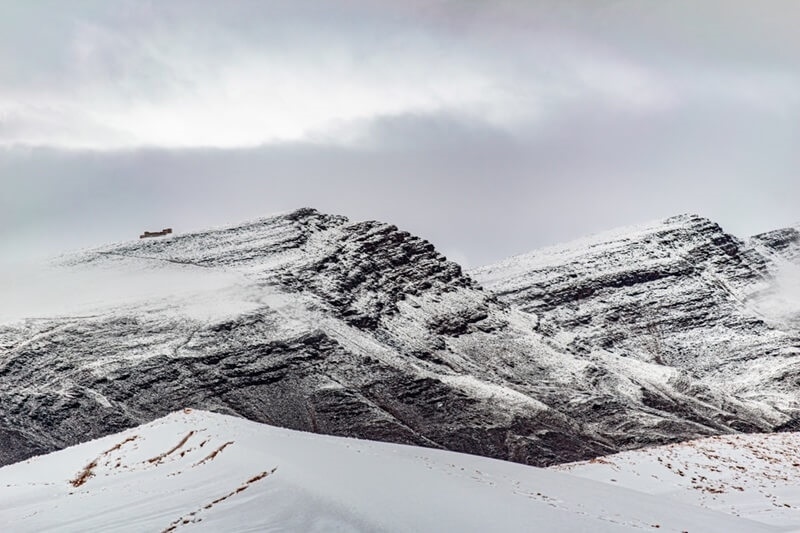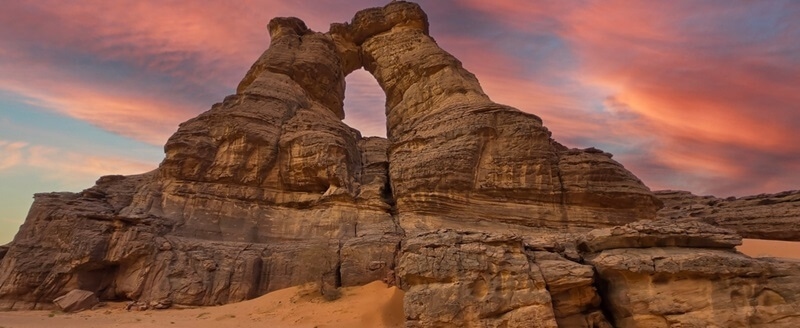
Algeria is a country of nature and thus, stays under the radar of most travelers. However, minimal travel criticism soon unfolds, including a visitor’s reluctance to find a richer culture, the country’s vast and uninhabitable nature, and the primal wilderness.
Eco-tourism in the eastern part of the country is mainly associated with a small wave of travelers amid the increasing number of people who demand environmental and social responsibility during their stay. This mode of tourism contributes to the environment's safety and the local communities' welfare, which are the main stakeholders of the land.
The essence of eco-tourism in Algeria has the tourists explore nature and learn about the culture of the country without harming it in any way. The priority is to go to the areas that support nature, local people, and architecture. Besides experiencing the silence of the sand dunes in the Sahara Desert, trekking in the Atlas Mountains is also a great way to interact with nature in a socially responsible manner.
Implementing sustainable travel practices in Algeria is a must rather than a fashionable idea. Algeria's environmentally unique and diverse areas are very delicate and are at risk of being adversely affected by the likes of different kinds of pollution, over-tourism, and climate change.
Taking measures to live sustainably makes sure that these places of inspiring beauty will still be here for the descendants of the coming ages to marvel at the same landscapes.

The great Saharan Desert is the main element, structurally, of the country, while its sand floods, secluded evergreens, and sparkling black skies pitch in for its endless beauty, you could get lost. For instance, you can make a trip to Tamanrasset or Djanet and there experience the wilderness of vast desert landscapes along with the warm hospitality of the Tuaregs. Generally, health centers there, most probably, consume solar power and use old-fashioned or natural methods for the harmonious merger of materials with the desert terrain.
From there, you go on a different excursion in the north of Algeria, where you can explore nature in the Tell Atlas and Saharan Atlas mountain ranges. The Kabylie area, with its wild woods and Berber-speaking village life, is ideal for hiking and cultural interaction. Also, the coastal strips on the Mediterranean, such as Tipaza and Bejaia, are perfect for eco-friendly tourists to be attracted by the serene coasts and marine life diversity.
There are excellent, abundant choices for eco-conscious people in the whole land who seek real, sustainable experiences. Here are some of the top eco adventures in Algeria:
One of the main attractions in Algeria for visiting eco-adventure seekers is embarking on a trek through Tassili n’Ajjer National Park, which is recommended by UNESCO. The place is world-famous for its oldest human history records in rock art, coupled with ephemeral forms of terracotta sandstone.
Green living is about making small changes one at a time. In case you intend to do green tourism Algeria offers, these are some of the down-to-earth green steps that you can take in order to make your trip eco-friendly:
Such small measures could create a huge impact if they were accompanied by the right attitude and respect for nature.
The other major issue of eco-tourism in Algeria is the connection to communities there. The country's diverse cultural heritage has a strong bond with the natural landscapes. When tourists invest time to communicate with local people, especially in rural and desert areas, they are contributors to the sustainability of traditional lifestyles.
A lot of eco-tourism initiatives collaborate with the native community and the Berber tribes, who, in turn, guide, host, and narrate their stories. Thus, by taking part in those, you are ensuring that the money made from tourism will go to the locals. Besides, it gives a chance to visitors to dig deep into the Algerian heritage, learn from the crafts, and experience the hospitality. By giving these social ties their proper value, green tourism in Algeria becomes not only an environmental decision but also a cultural exchange.
Observation of animals is one of the most thrilling things an eco-tourist can do in Algeria; however, it needs to be done cautiously. The country houses some very rare species, such as Barbary macaque, desert foxes, and many kinds of migratory birds. The right thing for travelers to do is to ensure that animal welfare is the main thing by watching from far away and not taking part in those activities that cause harm to animals.
The best way for tourists to understand nature tours Algeria offers is through local guides who know not only the behavior of the animals but also the fragility of their habitats. By going for authorized eco-guides, you are sure of the safety of both you and the environment during the activities. Taking such a responsible step keeps Algeria's fauna and flora in good shape while giving visitors genuine and enlightening occasions.
The most effective way to practice eco-travel in Algeria is through eco-lodges or small guesthouses, which are socially responsible in their operations. They are typically powered with solar energy, constructed using recycled materials, and provide organic, locally grown food.
For instance, the camps are set up with minimal impact in Tamanrasset or Djanet and are also very supportive of solid waste management. The lodges on the coast of the Mediterranean are regularly involved in marine conservation. Eco-conscious travelers, by staying in such places, are a huge part of the solution towards Algerian nature conservation and the promotion of moral travel in action.
The Algerian eco tourism does not end at sightseeing—it is a journey to the understanding of the man-nature relationship. By getting on with the green tourism in Algeria and buying tickets for eco adventures in Algeria, the visitors have the chance to get real experiences while at the same time they are helping to conserve the country's magnificent biodiversity and legacy.
Through deliberate decisions, being respectful of the local culture, and following ethical travel tips, your trip in Algeria becomes part of a bigger narrative that travel and sustainability are interconnected.
This content was created by AI